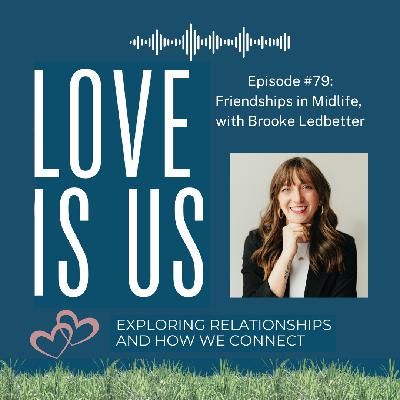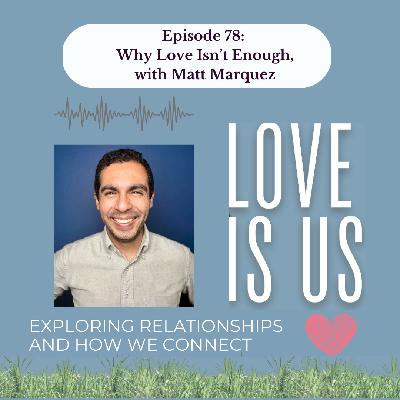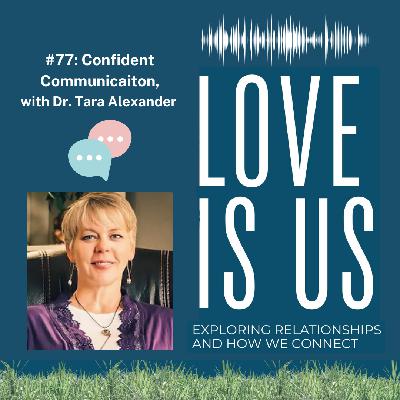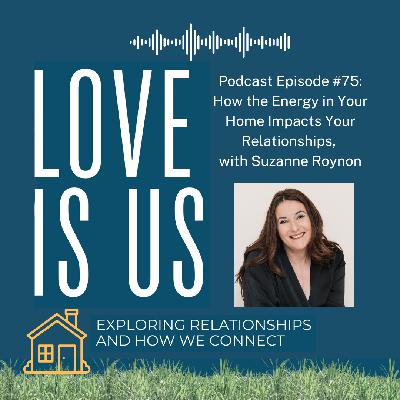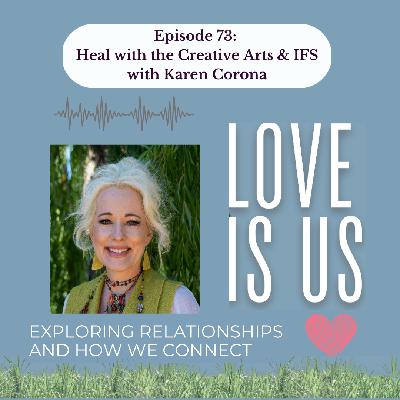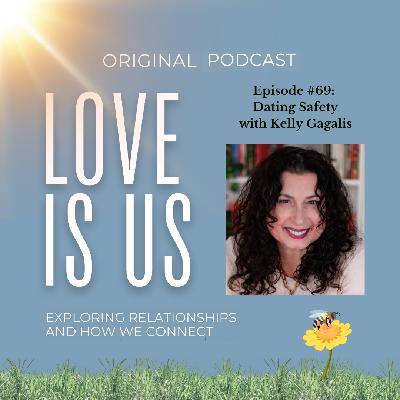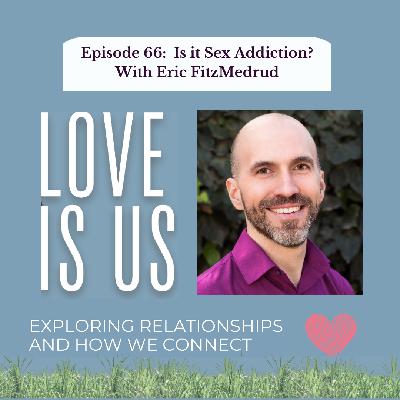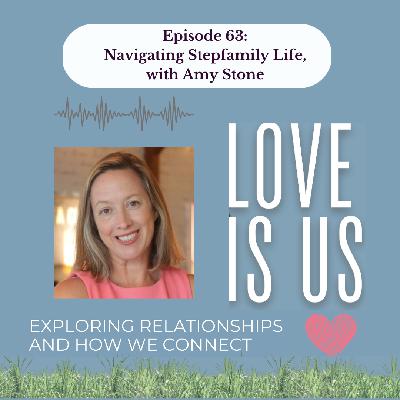#67: Betrayal and Forgiveness, with Bruce Chalmer
Description
Today I talk with Dr. Bruce Chalmer, a couple therapist and author of a newly published book about betrayal and forgiveness - a book I highly recommend for anyone struggling with forgiveness. Carrying around anger and/or resentment toward someone is a heavy burden to bear that can sap your energy, detract from your relationships, and steal your joy for life. But how can you forgive someone who has betrayed you? Is forgiveness always possible? Listen in to learn more!
Dr. Bruce Chalmer is a psychologist in Vermont who has been working with couples for over thirty years. Through his teaching, consulting, writing, podcast, and videos about relationships, his ideas have helped thousands of couples and their therapists.
Dr. Chalmer is the author of "It's Not About Communication! Why Everything You Know About Couples Therapy is Wrong", published in 2022, and "Reigniting the Spark: Why Stable Relationships Lose Intimacy, and How to Get It Back", published in 2020. His latest book is "Betrayal and Forgiveness: How to Navigate the Turmoil and Learn to Trust Again." With his wife, educator Judy Alexander, Dr. Chalmer co-hosts the "Couples Therapy in Seven Words" podcast, available at https://ctin7.com.
Books Bruce mentions in today's episode:
Whole Brain Living, by Jill Bolte Taylor
The Righteous Mind, by Jonathan Haidt
Learn more about Bruce:
Book: Betrayal and Forgiveness
Website: https://brucechalmer.com/
Podcast: https://couplestherapyinsevenwords.com/
Learn more about Karin:
Website: https://www.drcalde.com
Instagram: https://www.instagram.com/theloveandconnectioncoach/
TRANSCRIPT
Intro:
Karin: This is Love Is Us, Exploring Relationships and How We Connect. I'm your host, Karin Calde. I'll talk with people about how we can strengthen our relationships, explore who we are in those relationships, and experience a greater sense of love and connection with those around us, including ourselves. I have a PhD in clinical Psychology, practiced as a psychologist resident, and after diving into my own healing work, I went back to school and became a coach, helping individuals and couples with their relationships and personal growth. If you want to experience more love in your life and contribute to healing the disconnect so prevalent in our world today, you're in the right place. Welcome to Love Is Us.
Episode:
Karin: Welcome all my listeners. Thank you for being here. Today we are going to be talking about forgiveness. Oof. This can be a really tough topic for a lot of people, no exception to this. But when we hold on to anger and resentment, to that hurt after we've been betrayed, it affects the other areas of our lives and it impacts our relationships, especially when it makes it so that it's hard to trust again, because trust is a fundamental part of our relationships, of healthy relationships, anyway. So I'm really happy to have Bruce Chalmer back. I had him on about a year ago, and he has got so much experience working with couples, and I love learning from him. I read his recent book that he just published. It's called betrayal and how to navigate the turmoil and learn to trust again. And I can say with 100% integrity that this really is a book, and I highly recommend that you read it if you are going through something like this. So I'm excited to have him on. This is a really rich conversation with great information. And again, I'm glad you're here. Here we go. Bruce, welcome back.
[02:18 ] Bruce: I'm delighted to be back. Thanks for having me on your program.
[02:21 ] Karin: Yeah, it's really great to have you back. Of course, you were on my show, I don't know, around a year ago or so, and you were talking about communication and couples. And then you had contacted me a few months ago about this new book that you have out, betrayal and how to navigate the turmoil and learn to trust again.
[02:43 ] Bruce: Yes, indeed.
[02:44 ] Karin: And you would ask me to read it, and I eagerly said yes and really enjoyed it. I thought it was just very clear, easy to understand and digest, and I really appreciated it.
[02:56 ] Bruce: Well, thank you. I appreciate that. And I appreciate the really nice blurb that you wrote that appears in the book, actually on the praise pages in the beginning. You're in there. So thank you for that.
[03:06 ] Karin: I'm famous.
[03:08 ] Bruce: You are. Absolutely. And actually, as of the time, we happen to be recording this on the day after it is the official release. So now it's out there now. So you're getting more and more famous, at least I hope so.
[03:22 ] Karin: Excellent. So we're talking about forgiveness today. And there was a time when I worked in research down at Stanford, and I worked in doctor David Spiegel's laboratory. And so that name is probably not familiar to most people, but he's pretty well known in his field. He does a lot with hypnosis and altered states of consciousness in terms of dissociation. But also, he did this really famous study about how social support can extend your life, especially with a diagnosis of metastatic breast cancer. So that's what we were studying. But anyway, he would have these really big people come in, like, I got to meet Bessel van der Kolk and stuff like that. But one of the people he had come in worked just locally at Stanford, and I think he was kind of new at this time, and his name was Fred Luskin, and he came to talk to us about forgiveness. And I remember David Spiegel going, well, that's. And I hope that my memory is right. I hope I'm saying this accurately, but he kind of had enough of it. He was like, you know, I've worked with all these women who have had these terrible things done to them, and I am certainly not going to ask them to forgive. And I think that influenced me at the time. I was pretty young, but also, I don't think that I quite got it. And I was left with the question for a long time afterwards, like, what really is forgiveness and what is it not? And so maybe we can start there. Maybe you can talk to us about what it is and what it's not.
[05:18 ] Bruce: Yeah. In writing a book, betrayal and forgiveness, clearly, I am more than implying, I'm saying very explicitly, forgiveness is a really important part of healing from betrayal. But, of course, what we mean by forgiveness, it really depends on how you're using that term. And I wrote a fair amount in the book about what, at least the way I use the word what forgiveness is not. And I think there are. I suppose I could boil it down. There's two different ways of understanding the word forgiveness, and I go with one of them. And let me. Let me give you the one that I don't go with. A lot of times when someone says, okay, I forgive someone who hurt me, what it means is they've restored their relationship with them. So if somebody has been, oh, even let's say the case of a married couple and somebody is sexually unfaithful, and the person who was the offended party says, well, I forgave them. Meaning when they say it, they're saying, okay, I restored my relationship with them. We got past it. We're going to continue on with our marriage, or whatever it was. That's one way of understanding what forgiving is. I use the word forgiving in a different way, certainly not that rarer way either. But the way I use the word forgiving is it has almost nothing to do with the person you're forgiving. It's only about yourself. It's an inside job, which is to say, forgiveness is when you give up the preoccupation with the anger, the shock, the trauma stuff, when you've healed from the trauma enough so that you can think about it and be reminded of it and not go into a panic. That's what I mean by forgive. You've let go of that shock reaction. And that doesn't mean that you're going to restore the relationship with someone who betrayed you. You may, but what it means is you can think clearly about it. And that's why I say, well, forgiveness is a necessary part of healing, because you're, before you've forgiven, you're feeling this inner sense of pain. One of the people I quote, and many people when they talk about forgiveness, will quote Ann Lamotte, the novelist, and I think she writes essays as well. And one of her famous quotes, is something to the effect that to not forgive someone is like drinking rat poison and waiting for the rat to die. And as I point out, yeah, what you need to do is get the poison out of you, and then you can worry about dealing with a rat. And from that perspective, you can forgive. The way I'm defining forgiveness, it's possible, at least in theory, to forgive anything, no matter how heinous it is, no matter whether or not the person who hurts you has any remorse or deserves any kind of forgiveness in the forme



